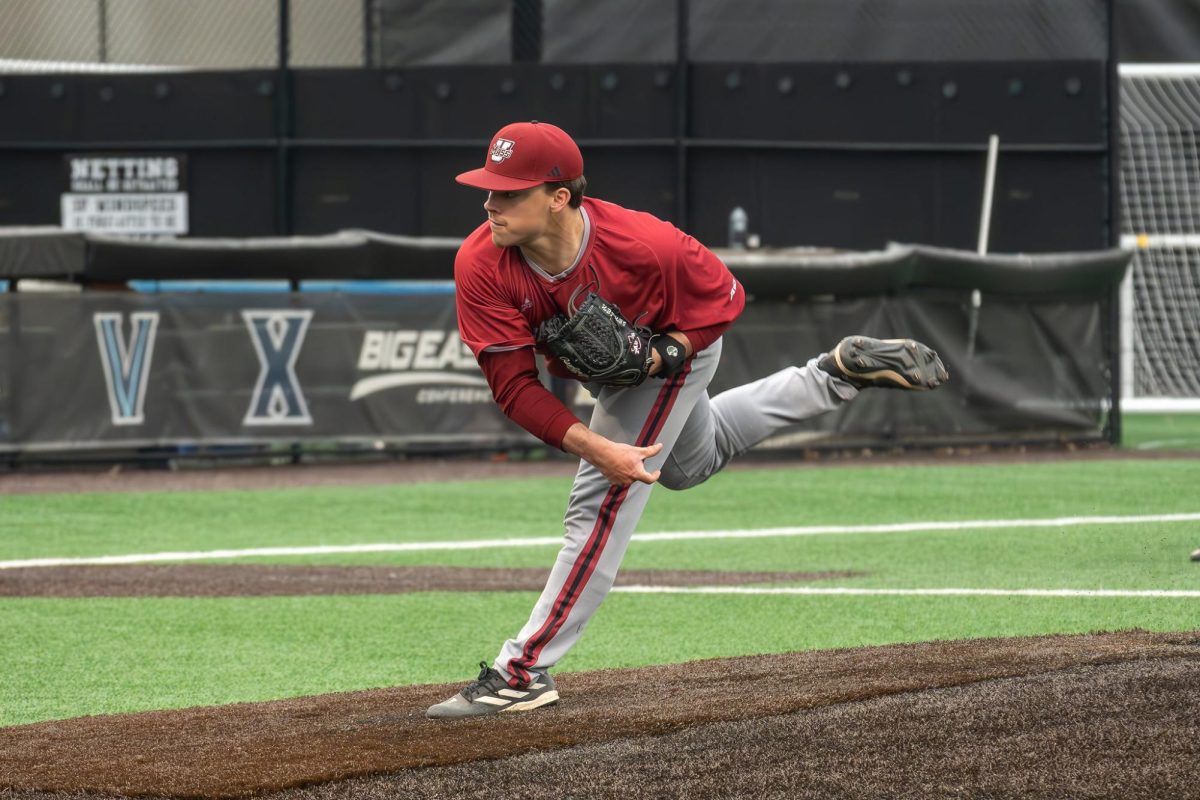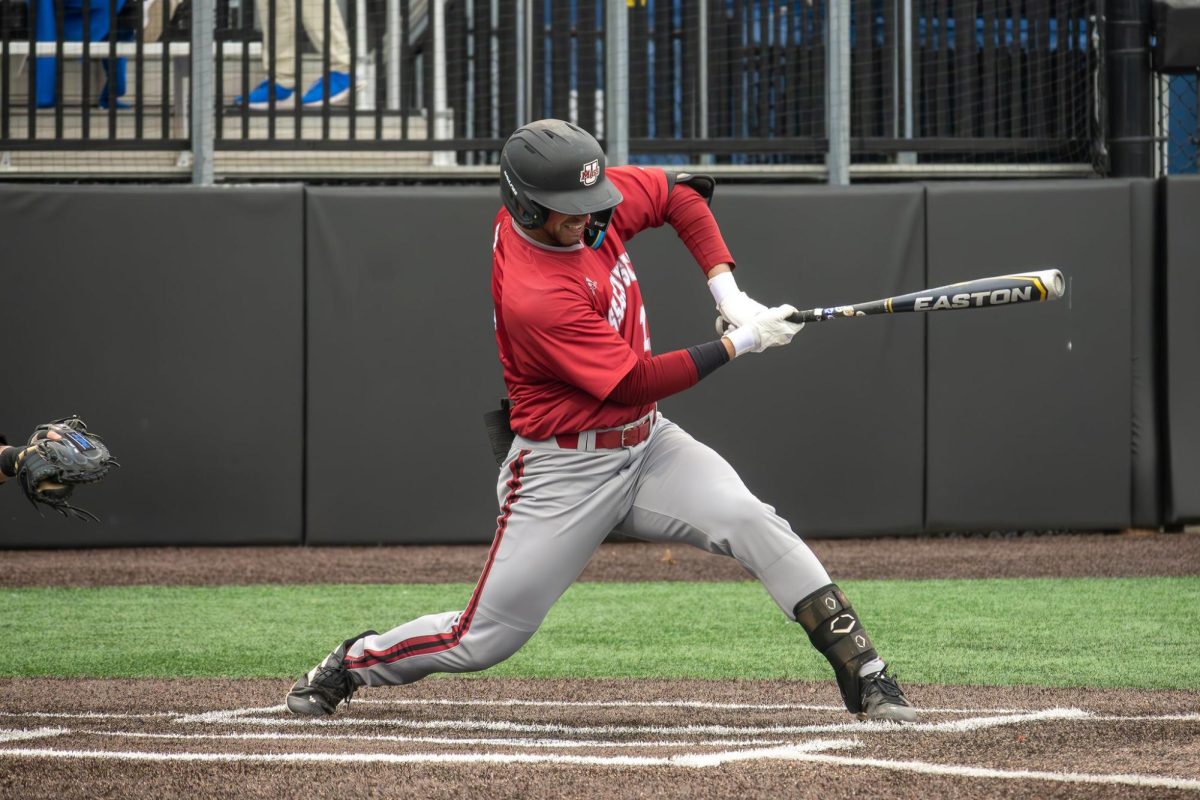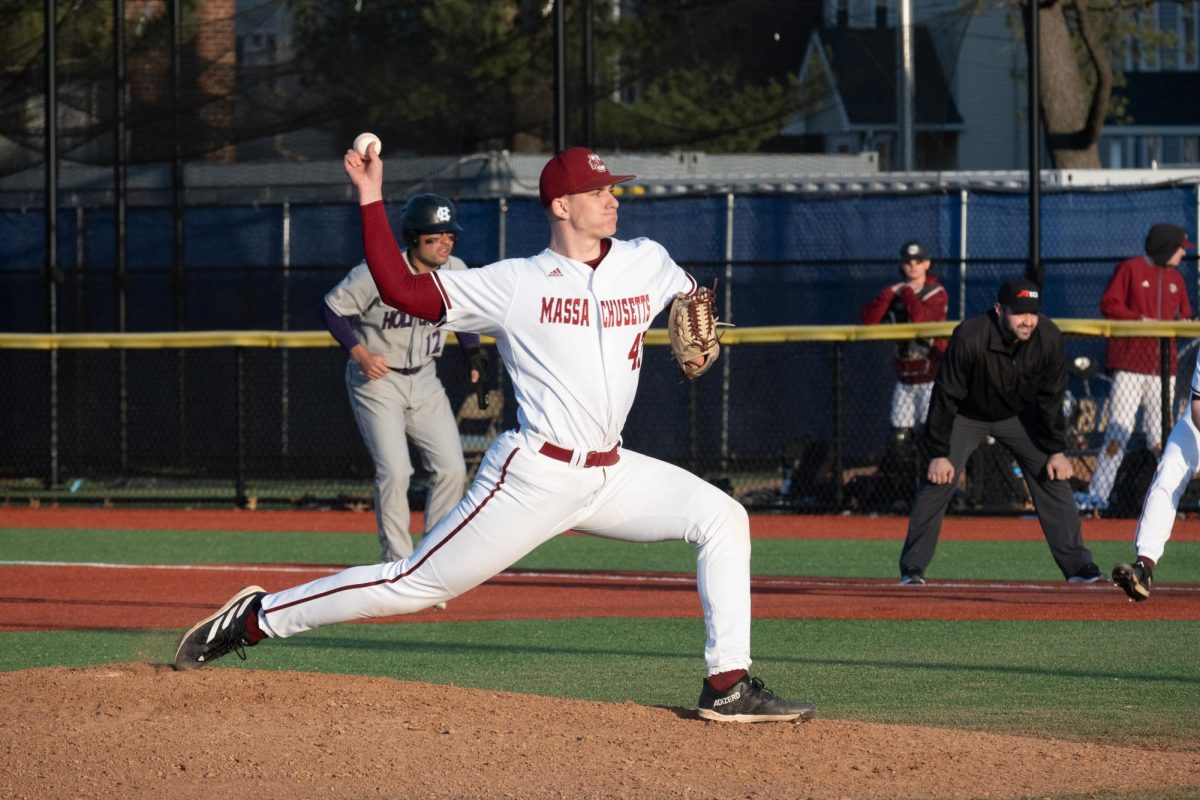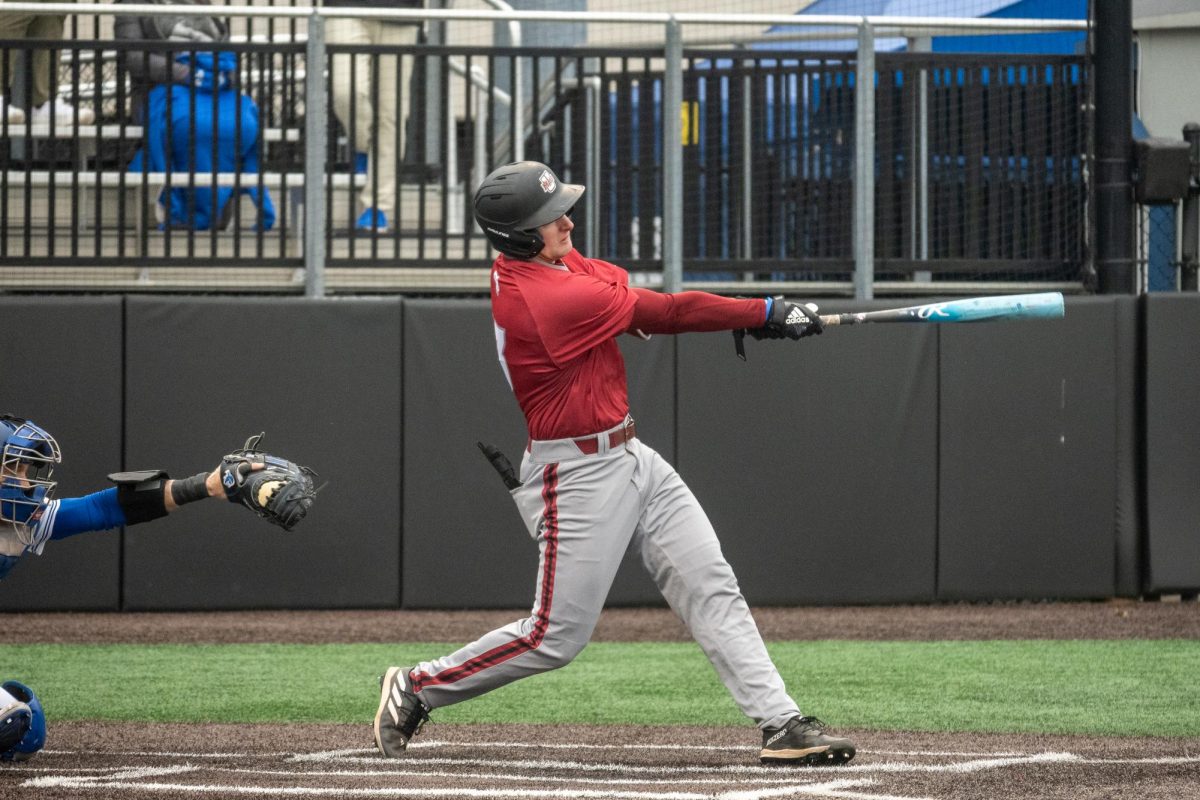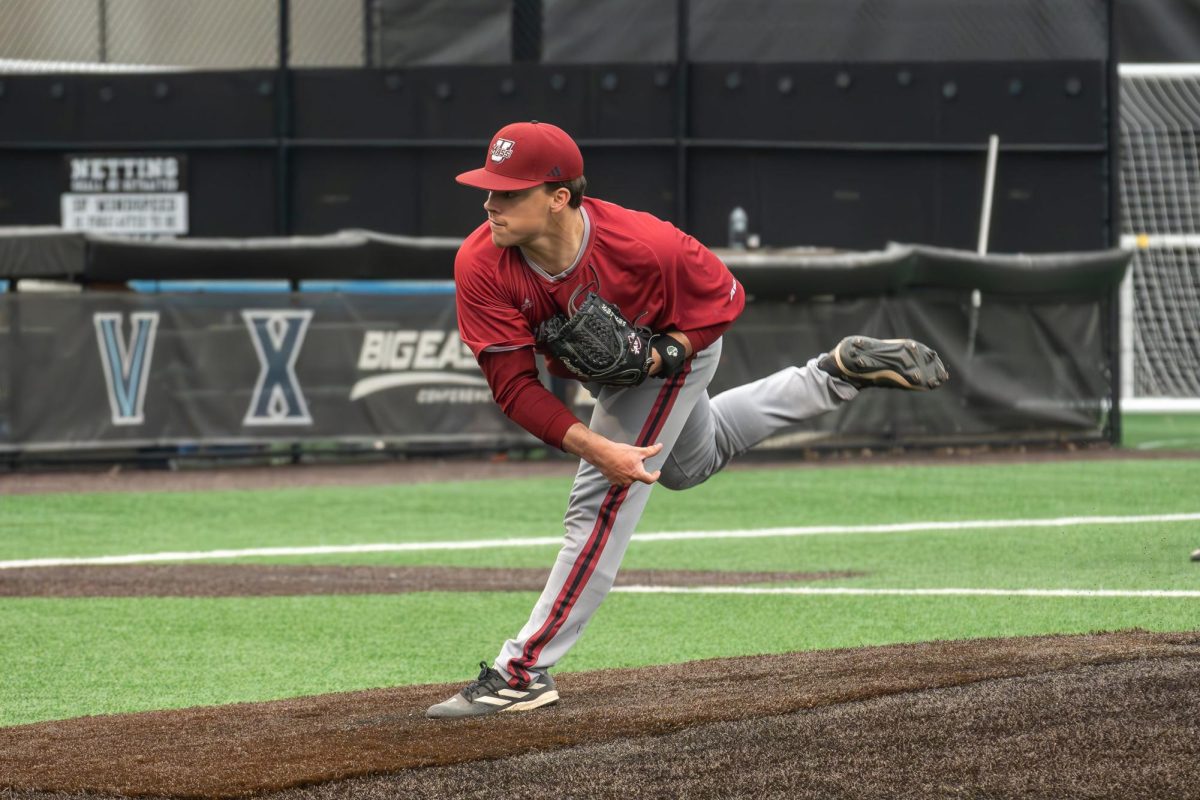
Co-captains Eric Fredette and Kyle Multner are two key cogs in the Massachusetts baseball team’s lineup that are expected to help carry the offense, given their track records. However, the duo has not started off that way the Minutemen quite expected when it comes inside the batter’s box.
The issues with Fredette and Multner are less about their mechanics and more about the faults of the game of baseball itself. Their ability to perform well isn’t necessarily the way they are competing and setting themselves up for pitches, but rather something entirely related to America’s past time.
It’s not their timing, nor their difficulty to adjusting to pitchers either. Rather, it’s what UMass coach Mike Stone calls, “just part of the game of baseball.”
“Sometimes in this game, you can be doing everything right, and never see the results you’re looking for,” said Stone. “There are a lot of variables, and sometimes, some of them just don’t amount in your favor. It doesn’t mean that you need to constantly adjust, you just need to keep doing the things that make you successful and everything will take care of itself.”
Fredette, a senior who transferred to UMass from Vermont before the beginning of last season, is currently hitting .261 with six RBIs and two extra-base hits in 69 at bats. Despite the lack of run production, Fredette has still walked more times than struck out with a six-to-eight ratio, which he credits to his coach, as well as his own personal calmness in the box.
“Coach hasn’t asked me to do anything different when I’m hitting, compared to the past,” said Fredette. “I’m still going to have the same approach and mindset every time I step in, and it’ll all come around, but I’ll do what I need to help the team win, because that’s all that matters.”
Multner has shown more signs of ups and downs this spring, going from a .200 average after the first nine games, to over a .300 average towards the end of last month, to currently a .261 average with two home runs and 10 RBIs. Multner’s discipline at the plate has been evident, maintaining a strikeout-to-walk rate of 16-to-11.
The lack of production in the box in the first half of the season for these two players has been undoubtedly disappointing. However, since both players have shown that they are much more capable than hitting at their current level, the trend isn’t expected to continue at its current pace for much longer.
Roughly halfway through last season’s campaign, Multner was batting .218 with two homeruns and a total of four extra-base hits. After April 24, Multer, a junior at the time, finished the second half batting .312 (15-for-48) with six homeruns and 12 of his season-total 18 RBIs.
In 2009, after hitting .250 through the first 18 games of the season, Multner turned up the dial, hitting nine homeruns the rest of the way, while driving in 24 of his season-total 30 RBIs and finished the year with a .306 average.
The same elevated performance can be said for Fredette, who last season posted a .384 average, while driving in 31 runs.
Fredette expressed his disappointment in his hitting thus far into the season.
“It obviously hasn’t gone the way I expected it to go so far [this season], but I know that it will come around,” said Fredette.
When it comes to his timing and difficulty to adjust to different pitchers game after game, Fredette said his woes could be a result from, “a little bit of all of that, but that’s just the way the game goes sometimes.”
Fredette doesn’t attribute the lack of adjustment to the new Batted Ball Co-efficient of Restitution-regulated (BBCOR) bats that have been introduced this season, although he did express that there’s, “certainly a different feel to it than before.”
“Before, with the older aluminum bats, the sweet spot was larger, which meant you could have a more solid connection,” said Fredette. “With these bats, you can feel like you got a hold of ball, but the result may be a deep fly out. However, we’re a small-ball team that plays the fundamentals, and that’s been our way to succeed, not hitting the ball out all the time.”
Multner and Fredette hope that their bats heat up as April continues when they take on Connecticut on Wednesday.
Scott Cournoyer can be reached at [email protected].


